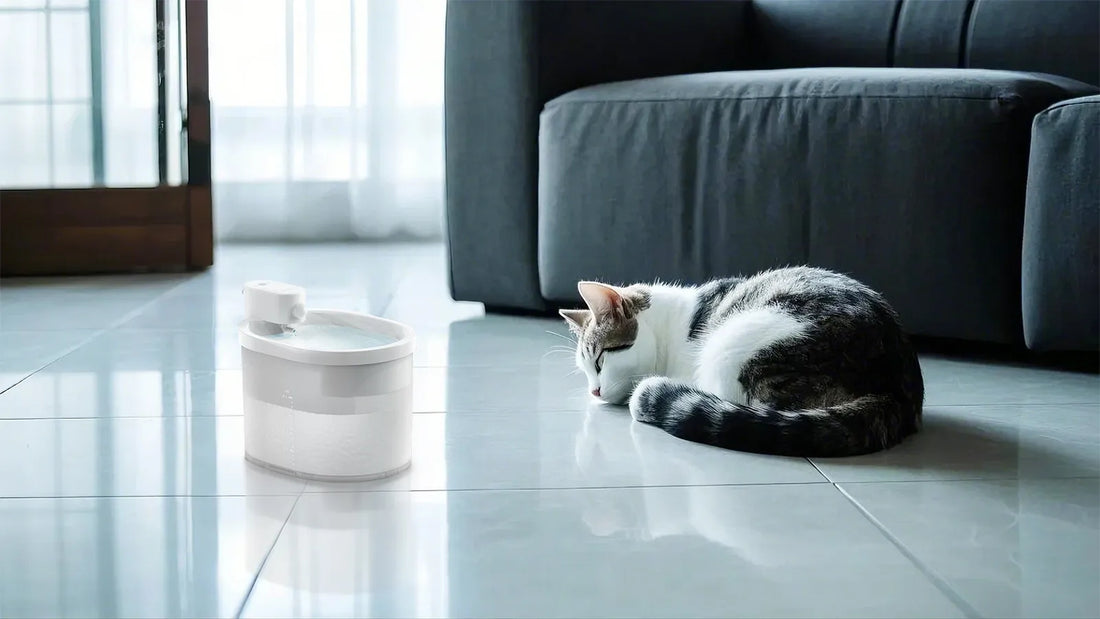If you've ever found yourself wondering, 'Why does my dog drink so much water?' you're not alone. Many pet owners notice changes in their dog's drinking habits and become concerned. While it's normal for dogs to drink water throughout the day, excessive thirst can sometimes indicate an underlying problem. In this article, we'll explore the potential causes of increased water consumption in dogs and provide guidance on when to seek veterinary care.
Normal Water Consumption for Dogs
Before jumping to conclusions, it's important to understand what constitutes normal water intake for dogs. On average, a healthy dog should drink about one ounce of water per pound of body weight each day. For example, a 30-pound dog would typically drink around 30 ounces of water daily. However, this amount can vary based on factors such as activity level, diet, and environmental conditions.
Common Reasons for Increased Thirst
There are several reasons why your dog might be drinking more water than usual. Some of these are benign, while others may require medical attention.
Hot Weather and Exercise
Just like humans, dogs tend to drink more water when they're hot or after physical activity. If your dog has been playing outside on a warm day or has had a long walk, increased water intake is perfectly normal.
Dietary Changes
Switching your dog to a dry food diet can lead to increased thirst. Dry kibble contains less moisture than wet food, so your dog may compensate by drinking more water. Similarly, a diet high in salt can also cause your dog to drink more.
Medications
Certain medications, such as steroids or diuretics, can cause increased thirst as a side effect. If your dog has recently started a new medication and you notice a change in their drinking habits, consult your veterinarian.
When Excessive Thirst Signals a Problem
While some causes of increased water consumption are harmless, others can be indicative of serious health issues. Here are some conditions that may lead to excessive thirst in dogs.
Diabetes
Diabetes is a common condition in dogs that can cause increased thirst. When a dog has diabetes, their body either doesn't produce enough insulin or can't use it effectively, leading to high blood sugar levels. This can result in excessive thirst and urination.
Kidney Disease
Kidney disease is another potential cause of increased water intake. When the kidneys aren't functioning properly, they can't concentrate urine as effectively, leading to more frequent urination and, consequently, increased thirst.
Cushing's Disease
Cushing's disease, or hyperadrenocorticism, is a condition where the body produces too much cortisol. One of the hallmark symptoms of Cushing's disease is excessive thirst and urination.
Infections
Urinary tract infections (UTIs) and other infections can also cause increased thirst in dogs. If your dog is drinking more water and showing signs of discomfort while urinating, it's important to seek veterinary care.
What to Do If You're Concerned
If you notice that your dog is drinking significantly more water than usual, it's important to monitor their behavior and look for other symptoms. Keep track of how much water your dog is drinking each day and note any changes in their appetite, energy levels, or urination habits.
Consult Your Veterinarian
If you're concerned about your dog's water intake, the best course of action is to consult your veterinarian. They can perform a thorough examination and run diagnostic tests to determine the underlying cause of your dog's excessive thirst.
Provide Fresh Water
Regardless of the cause, it's important to ensure that your dog always has access to fresh, clean water. Dehydration can be dangerous for dogs, so make sure they can drink whenever they need to.
Preventing Excessive Thirst
While some causes of increased water consumption are beyond your control, there are steps you can take to help prevent excessive thirst in your dog.
Maintain a Balanced Diet
Feeding your dog a balanced diet that meets their nutritional needs can help prevent excessive thirst. Avoid feeding your dog foods that are high in salt or sugar, as these can lead to increased water intake.
Regular Exercise
Regular exercise is important for your dog's overall health and can help regulate their water intake. However, be mindful of the weather and avoid overexerting your dog in hot conditions.
Routine Veterinary Check-Ups
Regular veterinary check-ups can help catch potential health issues early, before they lead to excessive thirst. Make sure your dog receives routine blood work and urine tests to monitor their kidney function and overall health.
Understanding why your dog is drinking so much water is crucial for their health and well-being. While some causes are harmless, others may require medical attention. By monitoring your dog's water intake and seeking veterinary care when necessary, you can ensure that your furry friend stays happy and healthy. If you're ever in doubt, don't hesitate to reach out to your veterinarian for guidance.













